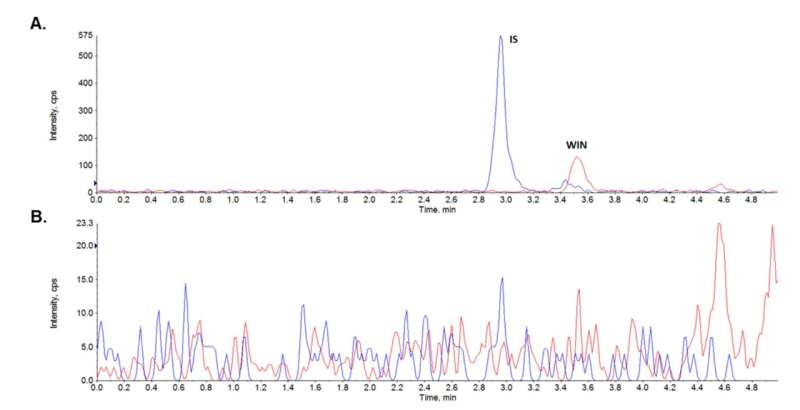This article has been reviewed according to Science X'seditorial processandpolicies.Editorshave highlighted the following attributes while ensuring the content's credibility:
fact-checked
peer-reviewed publication
trusted source
proofread
Study: Exposure to cannabinoids in pregnancy increases newborn mortality and respiratory problems

Consumption of cannabis (marijuana) or derivatives during pregnancy can cause respiratory problems for the baby, such as impaired control of breathing and diminished sensitivity to carbon dioxide, both of which favor sudden infant death syndrome. These are the main findings of a study conducted in Brazil and reported in an article published in theBritish Journal of Pharmacology.
The authors are researchers at São Paulo State University (UNESP) and the University of São Paulo (USP). They gave pregnant rats asynthetic compound(WIN 55) that acts on the brain in a similar manner to natural cannabinoids. Harmful effects occurred mainly in male pups.
"Cannabis and derivatives have been legalized or decriminalized in several countries, and their consumption has increased. Growing numbers of women are using the compounds present in Cannabis sativa plants as medication to combat nausea and even recreationally. However, the consequences of fetal exposure to cannabinoids aren't yet fully understood," said Luis Gustavo Patrone, first author of the article.
Mortality was 29% higher for fetuses exposed to the substance than for controls. Newborn male pups suffered more from abstinence tremors in the first few days after birth, as well as diminished lung compliance (expansion capacity) and alterations in basal breathing and ventilatory responses to oxygen andcarbon dioxide.
The researchers also observed impaired efficiency of mitochondrial respiration in the brain, and alterations in the quantities ofcannabinoidreceptors (CB1) and catecholaminergic neurons in the brain regions that control breathing.
In the females, they observed more spontaneous apneic events (breathing pauses) and a decrease in brainstem serotoninergic neurons.
In sum, the study showed that prenatal exposure to cannabinoids resulted in significant alterations in sensory and motor control of breathing, and that this result was more pronounced in males.
"Various compounds derived from the cannabis plant are known to cross the placenta barrier and may interfere in cerebral endocannabinoid signaling pathways, with severe effects on the fetus's neural and physiological functions, including cardiorespiratory processes. The impact on postnatal life can be lasting," said Luciane Gargaglioni, a professor at FCAV-UNESP and last author of the article.
Sudden infant death syndrome
The researchers noted that consumption of cannabinoids during pregnancy can be associated with the occurrence ofsudden infant death syndrome(SIDS), which can be due to inability to arouse from sleep. Breathing difficulties and a buildup of carbon dioxide in the blood may also be responsible. Spontaneous apneic episodes in females exposed to the substance during the study were considered evidence of impaired respiratory control.
"If the pillow falls on the baby's face and hampers their breathing while they're asleep, for example, they won't detect changes in blood gas levels if they have the syndrome. A newborn with normal respiratory control would wake up and cry. A baby with SIDS can suffocate for failing to detect even sharp oxygen deprivation and increased carbon dioxide," Patrone explained.
The researchers also tested for heightened sensitivity to carbon dioxide, as faster breathing due to a drop in blood carbon dioxide levels can cause panic attacks. Male rats of different ages exhibited an exacerbated respiratory response to carbon dioxide. In the case of females, this was observed only in juveniles. "Fetal exposure to cannabinoids can increase carbon dioxide sensitivity and vulnerability to panic disorder," Gargaglioni said.
The study did not detect significant alterations in cardiovascular and body temperature control in the short to medium term. The experiments ended when the animals reached the age of 28 days.
"Although the study involved rats, these important alterations in respiratory physiology due to exposure to cannabinoids in the womb should serve as a warning against therapeutic or recreational use of cannabinoids bypregnant women," Patrone said.
More information:Luis Gustavo A. Patrone et al, Sex‐ and age‐specific respiratory alterations induced by prenatal exposure to the cannabinoid receptor agonist WIN 55,212‐2 in rats,British Journal of Pharmacology(2023).DOI: 10.1111/bph.16044

















